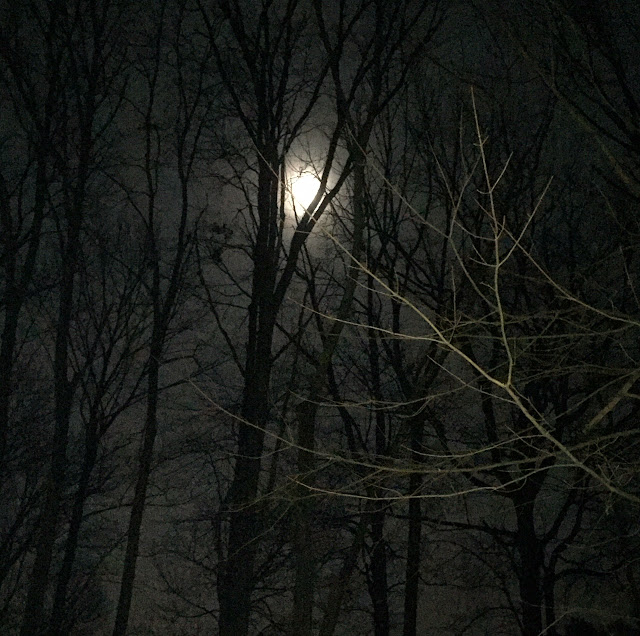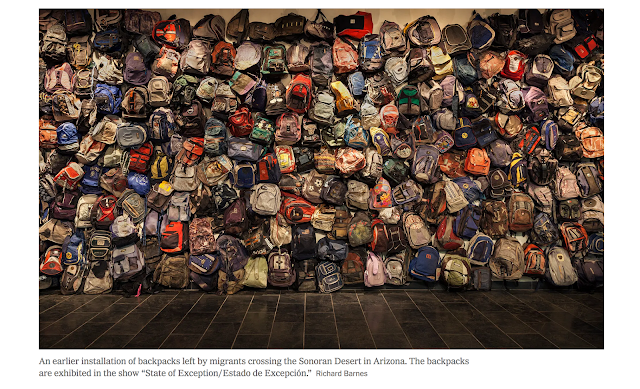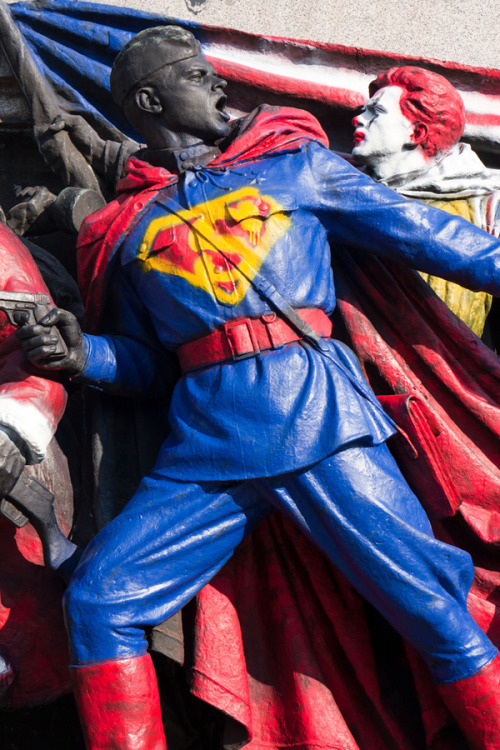The Trojans dragged the Wooden Horse inside their Gates, consecrated it to Athene, and started wildly celebrating their victory.
"Now is not the time to despair,
but to act."
Authoritarian
strongmen attain and maintain their power because they assuage our
fears of an uncertain future by telling us that they know how the story
will end. But hope for the future lies in that still open space of
unknowing. After being imprisoned for criticizing his country’s
regime,
Václav Havel wrote, “Hope is a dimension of the
spirit. It is not outside us, but within us.” Jamil Zaki notes that "hope isn’t just a mindset—it’s the plan."
Anything is possible. What we dream of is already present in the world. We don’t know what is going to happen, or how, or when, and that very uncertainty is the space of hope.
It is a nightmarish time. We
may be living through times of unprecedented change, but in uncertainty
lies the power to influence the future. Now is not the time to despair,
but to act."
According to writer Rebecca Solnit, "Those
who doubt that these moments matter should note how terrified the
authorities and elites are when they erupt. That fear signifies their
recognition that popular power is real enough to overturn regimes and
rewrite the social contract. And it often has. Sometimes your enemies
know what your friends can’t believe."
"Hope
is an embrace of the unknown" Solnit contends. "Hope locates itself in the premises that we don’t know
what will happen
and that in the spaciousness of uncertainty is room to act. When you
recognise uncertainty, you recognise that you may be able to influence
the outcomes – you alone or you in concert with a few dozen or several
million others. Hope is an embrace of the unknown and the unknowable, an
alternative to the certainty of both optimists and pessimists. Power
comes from the shadows and the margins, that our hope is in the
dark around the edges, not the limelight of centre stage. Our hope and
often our power.
Walter Benjamin locates hope in remembrance. He calls it "awakening to history." He describes history as a crime scene that can show us that the past is made of turning points. Anything can happen and will.
in the dead silence of the night, Odysseus raised his sword and ordered Epeius to unlock the trap-door. Agamemnon’s army stormed through the open gates. Not even the gods could save Troy now.
Memory is attached to place. We use human experience to define place,
not physical characteristics. Power is contingent on forgetting - on displacing the past, covering over the ruins of history and erasing significant places of our lives.
Placelessness matters as Bill McKibben reminds us in his review of Solnit's Storming the Gates of Paradise. When there’s no there there -- no Bastille to storm -- then confronting
power becomes so frustrating that it’s easy to just give up and play
another round of Doom.
“the scene of
the crime ... has vaporized,[...]into a maze, echoed in the Web, with its endless branchings and resisting[...] an unlocatable and
unimaginable crime is difficult.”
"Memory produces hope in the same way that amnesia produces despair,” the theologian Walter Brueggemann
notes - a memory that includes our power, produces that forward-directed energy called hope."
The sleeping giant is one name for the public; when it wakes up, when we
wake up, we are no longer only the public: we are civil society, the
superpower whose nonviolent means are sometimes, for a shining moment,
more powerful than violence, more powerful than regimes and armies. We
write history with our feet and with our presence and our collective
voice and vision. And yet, and of course, everything in the mainstream
media suggests that popular resistance is ridiculous, pointless, or
criminal, unless it is far away, was long ago, or, ideally, both. These
are the forces that prefer the giant stays asleep.
Social,
cultural or political change does not work in predictable ways or on
predictable schedules. The month before the Berlin Wall fell, almost no
one anticipated that the Soviet bloc was going to disintegrate all of a
sudden.
It is an extraordinary statement, one that reminds us that
though hope is about the future, grounds for hope lie in the records and
recollections of the past. We can tell of a past that was nothing but
defeats, cruelties and injustices, or of a past that was some lovely
golden age now irretrievably lost, or we can tell a more complicated and
accurate story, one that has room for the best and worst, for
atrocities and liberations, for grief and jubilation.
Sometimes empires crumble and ideologies fall away like shackles. But
you don’t know beforehand. People in official institutions devoutly
believe they hold the power that matters, though the power we grant them
can often be taken back; the violence commanded by governments and
militaries often fails, and nonviolent direct-action campaigns often
succeed.
Every now and then, the possibilities explode. In these moments of
rupture, people find themselves members of a “we” that did not until
then exist, at least not as an entity with agency and identity and
potency; new possibilities suddenly emerge, or that old dream of a just
society re-emerges and – at least for a little while – shines.
Together we are very powerful, and we have a seldom-told,
seldom-remembered history of victories and transformations that can give
us confidence that, yes, we can change the world because we have many
times before. You row forward looking back, and telling this history is
part of helping people navigate toward the future. We need a litany, a
rosary, a sutra, a mantra, a war chant of our victories. The past is set
in daylight, and it can become a torch we can carry into the night that
is the future.
In one of the best essays in this sterling collection, activist Rebecca
Solnit describes Silicon Valley as “a decentralized, diffused region:
postindustrial, postcommunal, postrural, and posturban -- postplace.”
Nothing so new in that observation, but in the pages that follow she
explains the reasons that placelessness matters. When there’s no there
there -- no Bastille to storm -- then confronting power becomes so
frustrating that it’s easy to just give up and play another round of
Doom. Silicon Valley is the very image of “postmodern control, in which
power is transnational, virtual, in a gated community, not available at
this time, in a holding company, incomprehensible, incognito.” It
becomes a maze, echoed in the Web, with its endless branchings. If you
track that corporate power diligently across the globe, she insists, you
will find all the victims -- Third World peasants uprooted by
agribusiness, the bewildered homeless of her beloved San Francisco, the
impoverished imaginations of an entire civilization. But “the scene of
the crime ... has vaporized, and resisting an unlocatable and
unimaginable crime is difficult.” Bill McKibben review of Solnit's Storming the Gates of Paradise.






















